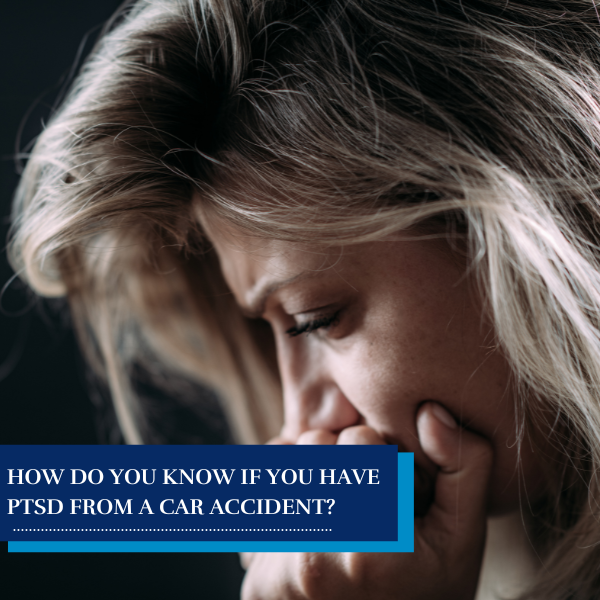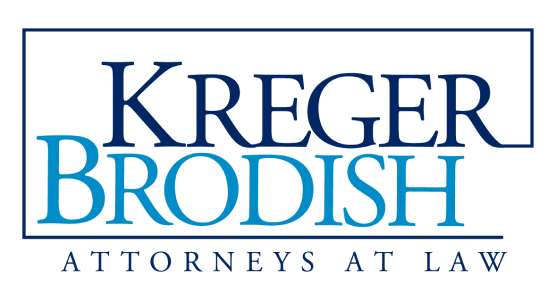
The violence and trauma unleashed by a car accident can damage more than just flesh and bone. Many people who survive serious collisions find themselves dealing with severe mental health conditions long after their physical injuries have healed.
If you’re struggling with intrusive thoughts, flashbacks, or debilitating anxiety in the wake of a car accident, you might have post-traumatic stress disorder, or PTSD. Here’s what you should know about the condition and what you can do next.
How Common Is PTSD After a Car Accident?
PTSD is a mental health condition brought on by a terrifying, painful, or otherwise traumatic event. It is characterized by intense and intrusive thoughts and feelings related to the traumatic experience. These thoughts and feelings can be frightening and disturbing, disrupting daily life and regular activities.
So, can you get PTSD from an accident? The answer is a decisive yes.
Although many think of PTSD as a side effect of war, sexual assault, and other acts of deliberate violence, studies indicate that victims of motor vehicle accidents also have an elevated risk of developing PTSD. In fact, a landmark study of PTSD found that motor vehicle collisions are the leading cause of the disorder in the general population.
The Impact of PTSD on Car Accident Victims
PTSD from an auto accident can impact nearly every aspect of a person’s life and lead to long-term physical and mental health complications. Those with PTSD are at an increased risk of suffering other mental health conditions such as depression and anxiety. Many people with PTSD experience changes in mood and behaviors, intrusive negative thoughts, hopelessness, and feelings of detachment from others. The symptoms of PTSD can be so disruptive that they can cause personal and professional relationships to erode, further isolating the sufferer and causing yet more stress and mental health issues.
Unfortunately, those without access to professional mental health care and support often find it challenging to cope with PTSD after an auto accident. Many sufferers of PTSD turn to drugs and alcohol to help them manage their symptoms, numb their emotions, and avoid dealing with their underlying condition. Some develop eating disorders and self-destructive behaviors.
Some research also indicates that those diagnosed with PTSD are 2.6 times more likely to die by suicide than those with no psychiatric conditions.
Legal Recognition of PTSD in Personal Injury Claims
The fundamental legal principle of personal injury law is that someone who injures another person is financially responsible for the consequences of that injury. So, if you’re hurt in a car accident someone else caused, that person has a legal duty to compensate you for your losses. These include the repairs to your damaged vehicle, any income you’ve lost from being too hurt to work, and the medical care you need to treat your injuries – both your physical and mental ones.
Unfortunately, many people who develop PTSD from a car accident struggle to recover adequate compensation for their mental health conditions. This is because the effects of PTSD are much less observable than physical injuries like broken bones or severe lacerations. To get fair compensation for an “invisible injury” like PTSD, you’ll need considerable evidence to back up your car accident injury claim.
First, you’ll need a medical diagnosis of PTSD from a trained and experienced healthcare provider to substantiate your claim. If you are experiencing disturbing side effects like nightmares, intrusive thoughts, changes in thinking and behavior, or other concerns about mental health issues, talk to your doctor immediately.
Steps to Take If You’re Experiencing Symptoms After an Accident
There is still a lot of misinformation and confusion about PTSD. You won’t necessarily wake up the day after a traumatic car crash with severe PTSD. Instead, the signs of PTSD can take weeks, sometimes even months, to manifest themselves. Moreover, the symptoms of the disorder can also vary from person to person. If you or your family notices that you are beginning to exhibit changes in mood or behavior and believe you may have PTSD or another mental health condition, consider taking the following steps:
- Seek professional help immediately – Do not wait to see if you “feel better.” Talk to your doctor or make an appointment with a mental health professional immediately.
- Follow all medical advice – Follow your doctor’s advice and take all medication as prescribed.
- Consider your treatment options – Several treatment options may help you cope with PTSD, like cognitive-behavioral therapy, cognitive-processing therapy, and eye movement desensitization and reprocessing (EMDR) therapy.
- Seek support from others – You are not on this journey alone. It can help to get in touch with PTSD support groups, where others can share their coping strategies and support each other in a compassionate environment.
Navigating Your PTSD Claim: What to Expect
The best way to strengthen your PTSD claim is with evidence. Medical evidence is crucial, including comprehensive documentation from mental health professionals who have diagnosed and treated you for PTSD. This documentation should detail the symptoms the doctors observed, the treatment they provided, and how PTSD is directly linked to the car accident. Additionally, records of medications prescribed for PTSD can reinforce your claim.
Non-medical evidence is also important. Keep a journal that tracks your mental state post-accident. Seek testimonials from family, friends, or coworkers who knew you before the accident and can speak to how you’ve changed afterward.
Perhaps most importantly, get help from an experienced car accident attorney in North Carolina. They will know how to navigate your claim effectively and what evidence will support it.
Compensation for PTSD After Car Accidents
The overall value of a car accident claim depends on several factors, including the severity of your injuries and the cause of the collision. That said, you could seek money for the following by pursuing a personal injury claim:
- Medical expenses, including ongoing psychiatric care and medications
- Lost income and diminished earning potential if your condition affects your ability to work
- Home assistance, if your condition affects your ability to care for yourself
- Loss of consortium for the ways your condition affects your relationship with your spouse
Contact Our North Carolina Car Accident Lawyers for Help
Are you dealing with PTSD after a car accident in North Carolina? The compassionate legal team at Kreger Brodish LLP is here to help you navigate the claim process and give you the support you need to face these challenging times. We can negotiate with the other driver’s insurance company on your behalf to seek the compensation you deserve. Contact our North Carolina car accident firm today for a free case review.






